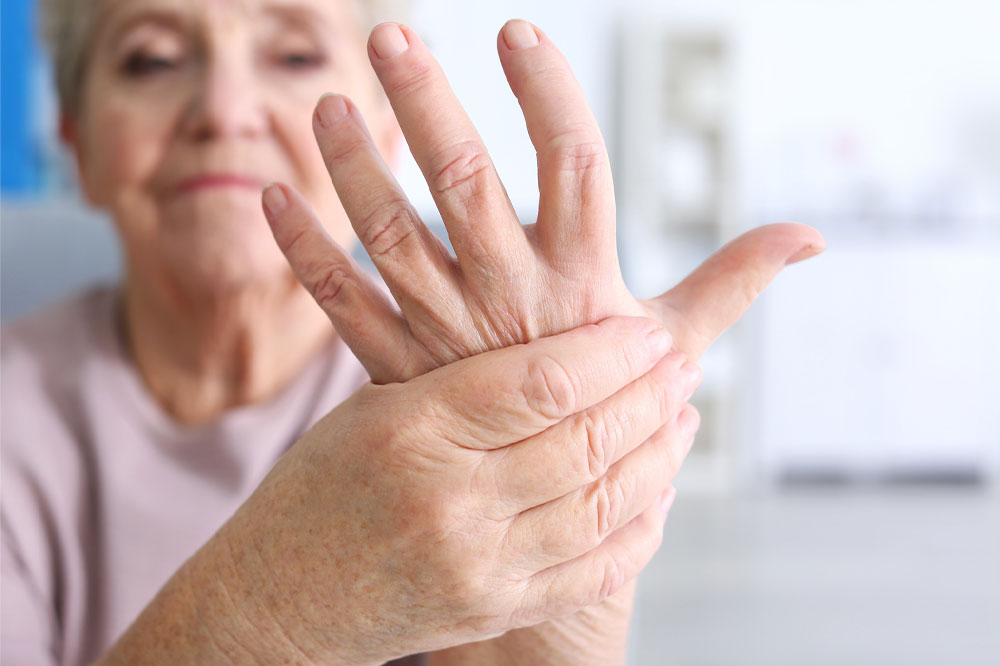8 warning signs of Parkinson’s disease

Parkinson’s disease is a severe brain disorder that may result in symptoms that are not noticeable in its early stages. However, the progressive disorder eventually damages the nervous system and various parts of the body controlled by the nerves. And while one could look for treatments to manage the disease, it isn’t easy to tell if someone has Parkinson’s disease because its symptoms may be similar to other health conditions.
Here are eight signs that require the immediate attention of a healthcare expert.
Loss of smell
The loss of smell is usually associated with the onset of Parkinson’s disease. The individual might have trouble smelling foods like dill pickles, licorice, and bananas. The loss of smell (hyposmia) may result in reduced food satisfaction, which may degrade one’s appetite. It can lead to a reduced enjoyment of food and appetite. There are also other health conditions why one may lose their sense of smell, including a stuffy nose, cold, and flu. The individual may be able to smell foods once again when they get better. However, if the condition occurs suddenly, one should consult an expert for signs of Parkinson’s disease.
Constipation
The foods one eats may play a major role in overall health, especially in the gastrointestinal system. Therefore, eating unhealthy meals could result in digestive complications, including constipation. For example, insufficient water intake or fiber in a meal could lead to poor bowel movements. Even ongoing prescriptions may trigger constipation. However, according to experts, the symptom is also an early warning sign of Parkinson’s disease. The changes in the brain that cause stiffness and slow movement also affect the muscles involved in swallowing and pushing food through the digestive system. So someone with Parkinson’s disease may develop constipation because of the improper functioning of the autonomic nervous system, which is responsible for regulating smooth muscle activity of the gut. The disease may also alter the messages sent by the brain to the bladder, which could result in an overactive bladder. Therefore, the individual may need to urinate even when their bladder is empty or even experience urinary incontinence.
Stooped posture
Parkinson’s disease may affect one’s automatic activities. So an individual at risk of Parkinson’s may notice changes in their posture because the brain does not send signals indicating that they must stand up straight. A few changes may include rounded or stooped shoulders, forward lean of the head, and reduced low-back curve, which causes one to hunch over.
Tremors
A shaking or tremor in the finger, thumb, chin, or hand is normal after strenuous exercise or an ongoing prescription. It could also happen if the individual suffers from an injury. However, if one experiences none of these signs and still notices a tremor, it could be an early sign of Parkinson’s disease. The typical PD tremor occurs when the body is at rest (resting tremor), and the symptom may reduce when the body is actively in use or when the person sleeps. However, it may recur when the person is awake and does not indulge in any activity.
Tiny handwriting
Everyone has a writing style that may differ slightly with time. This may usually occur as the person gets older, has poor vision, or if they have stiff hands or fingers. But if an individual’s handwriting becomes small and out of the ordinary, it could indicate the onset of Parkinson’s disease. The condition is known as micrographia. Apart from handwriting being small and crowded together, the size of the writing may get smaller as the person continues to write. Such symptoms must be diagnosed by an expert immediately for that the individual can get on an appropriate treatment plan for PD.
Trouble falling asleep
Most people have trouble falling asleep because of factors such as stress, excitement, or an ongoing illness. One may also experience quick jerks of the body when they are about to fall asleep or in lighter sleep. But this could also be an early indicator of Parkinson’s disease. The person may start acting out in their dreams, even in a deep sleep. And while they might not notice it, sleep troubles are usually identified by someone who lives with the patient. Therefore, any such signs should be diagnosed by an expert. The person with Parkinson’s may also undergo excessive daytime sleepiness, an inverted sleep cycle where they nap during the day, which makes it harder to sleep at night.
Difficulty with moving or walking
One of the early warning signs of Parkinson’s disease could be difficulty moving or walking. The phenomenon could occur due to stiffness of the body, arms, and legs. The individual may find that these body parts do not swing as they used to. While the stiffness usually recedes, it might be chronic in those with Parkinson’s disease. An early sign one should look for is stiffness or pain in the shoulder or hips. Some may also notice that their feet are stuck to the floor. It is easy for one to overlook the symptom, as it is similar to that of arthritis. They may also need help controlling their movements, including starting and stopping, automatically controlling muscles, and find it difficult to go from sitting to standing easily.
A masked face
Some prescriptions could change an individual’s facial expression. Therefore, someone on a treatment plan may have a serious look or a staring persona. This side effect usually goes away after the prescription wears off. However, if one always has a depressed, serious facial expression, they ought to consult with a doctor for signs of Parkinson’s disease. Facial masking (hypomimia) could occur due to alterations in the facial muscles due to irregularities in the brain. As a result, the muscles turn stiff and may take longer to move, making it challenging to raise eyebrows, smile, and express one’s feelings. Other similar symptoms may include a low voice when one speaks, making it difficult for others to interpret the patient’s mood.
















